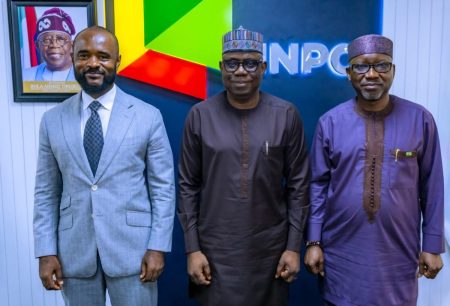16 January 2013, Sweetcrude, Lagos – The Petroleum and Natural Gas Senior Staff Association of Nigeria (PENGASSAN) and National Union of Petroleum and Gas Workers (NUPENG) are set to clash with the International oil companies (IOCs) over perceived differences in some of the provisions contained in the Petroleum Industry Bill (PIB), as the National Assembly resumes next week to consider the bill.
PENGASSAN is strongly opposed to what it sees as insincerity on the part of the IOCs, especially their position over the current fiscal regime contained in the PIB, which they deem unfavourable. The IOCs through Mr. Ubaka Emelumadu, Vice President, Gas, Sub-Saharan Africa, Shell Upstream International had said at a stakeholders meeting, that the PIB currently under consideration in the National Assembly will no doubt play a vital role in the survival and growth of the oil and gas industry in Nigeria.
However, he pointed out that there are some areas of disparity between the IOCs, the government and other stakeholders.
“In terms of fiscals, what we have seen and know of this PIB requires improvement to attract the required level of investment to match Nigeria’s expectations now and in the future. The royalties and rents are high. For instance with gas tax increasing from 30 percent to 80 percent, royalty increasing from 7 percent to 12.5 percent for big producers and minimal tax allowances for investment incentives on gas cannot simply work,” he said.
According to the workers, these claims by the IOCs are disputable because the royalties, taxes and rents they have been enjoying in the industry before now are far lower than what obtains in other countries.
The workers maintained that the gas tax is still below 50 per cent as against the 85 percent recommended by the current fiscal regime and that royalty which the IOCs hardly pay are not up to 12 per cent as against the 20 per cent maximum.
The fiscal regime recommends that the assessable profits of an oil-producing company be obtained from its adjusted profits, and the law allows all unrecouped losses suffered by the company during any previous accounting periods to be deducted from its adjusted profits.
If all the losses cannot be relieved from the adjusted profits of any accounting period, it may be due to insufficient profit from which such losses could be offset.
The PPTA allows the unrelieved losses to be carried forward to the succeeding accounting periods. Some of the IOCs are said to have been taking undue advantage of this particular provision and had been claiming insufficient profit over the years.
The Chairman, Lagos branch of PENGASSAN, Rev. Folorunsho Oginni in an interview said the workers had taken a total overview of the industry and that most of their findings and what they intend to recommend to the National Assembly countered the claims and figures being bandied by the IOCs and that the two Unions are set to defend their own position when the National Assemble resumes work on the bill next week.




